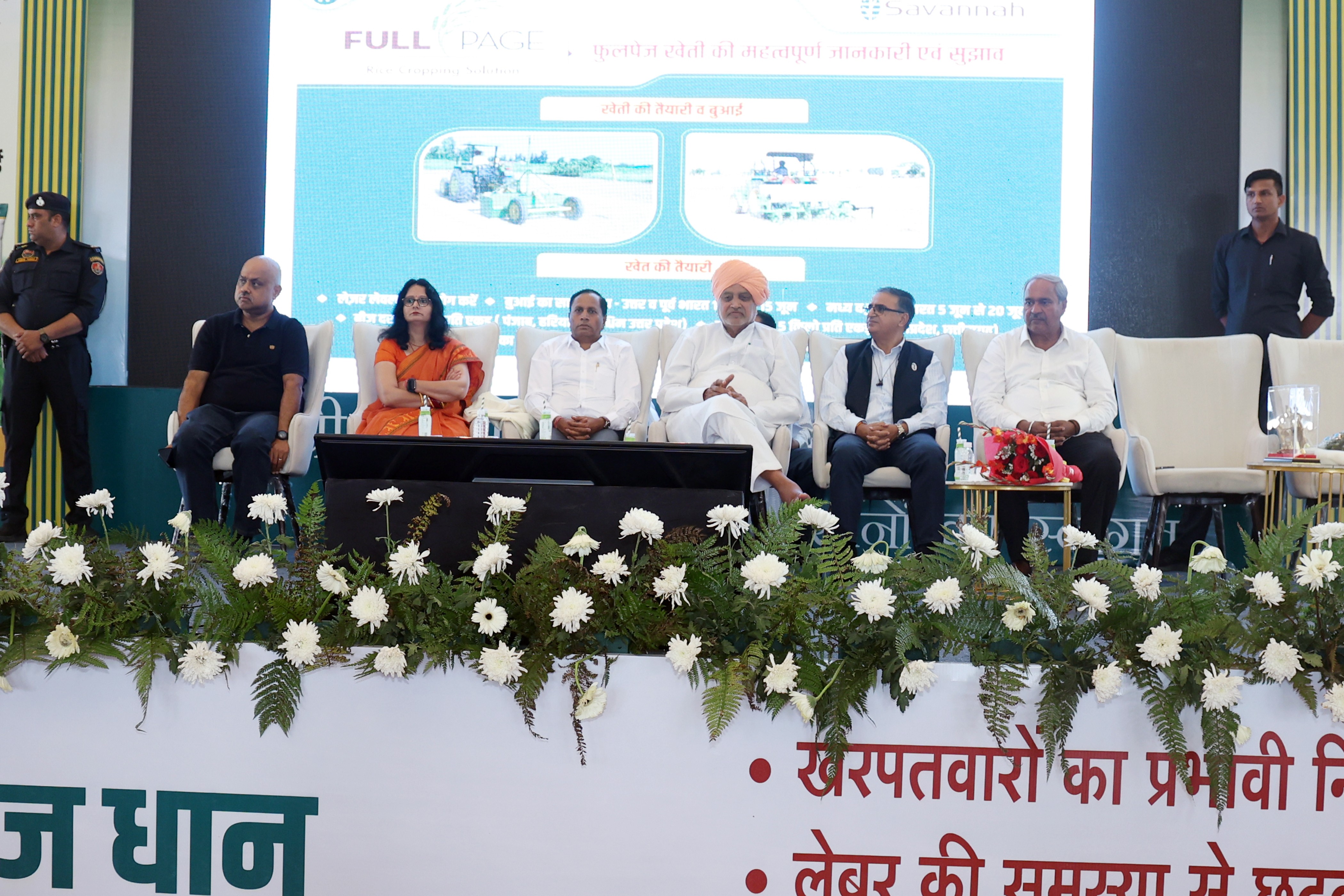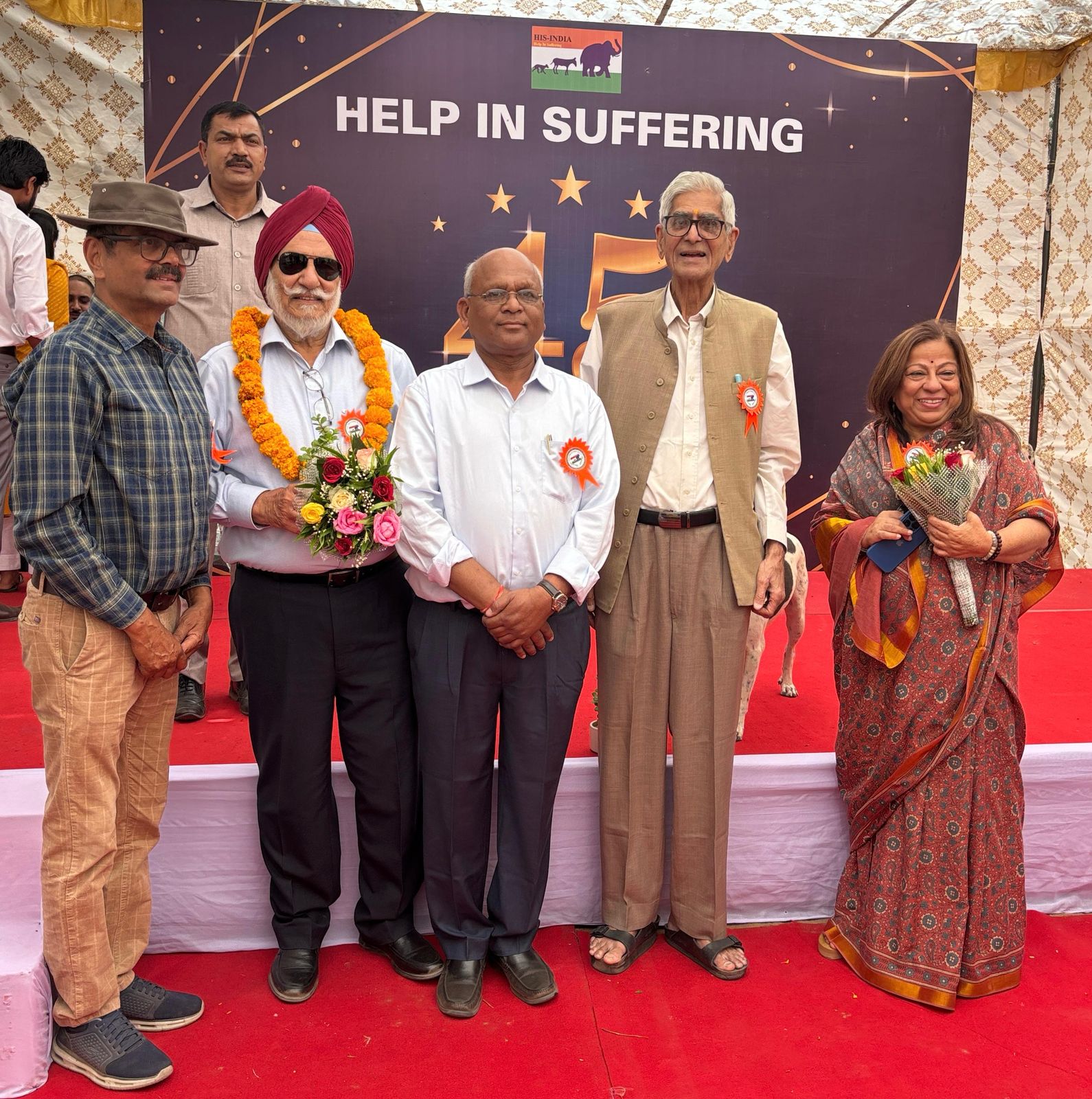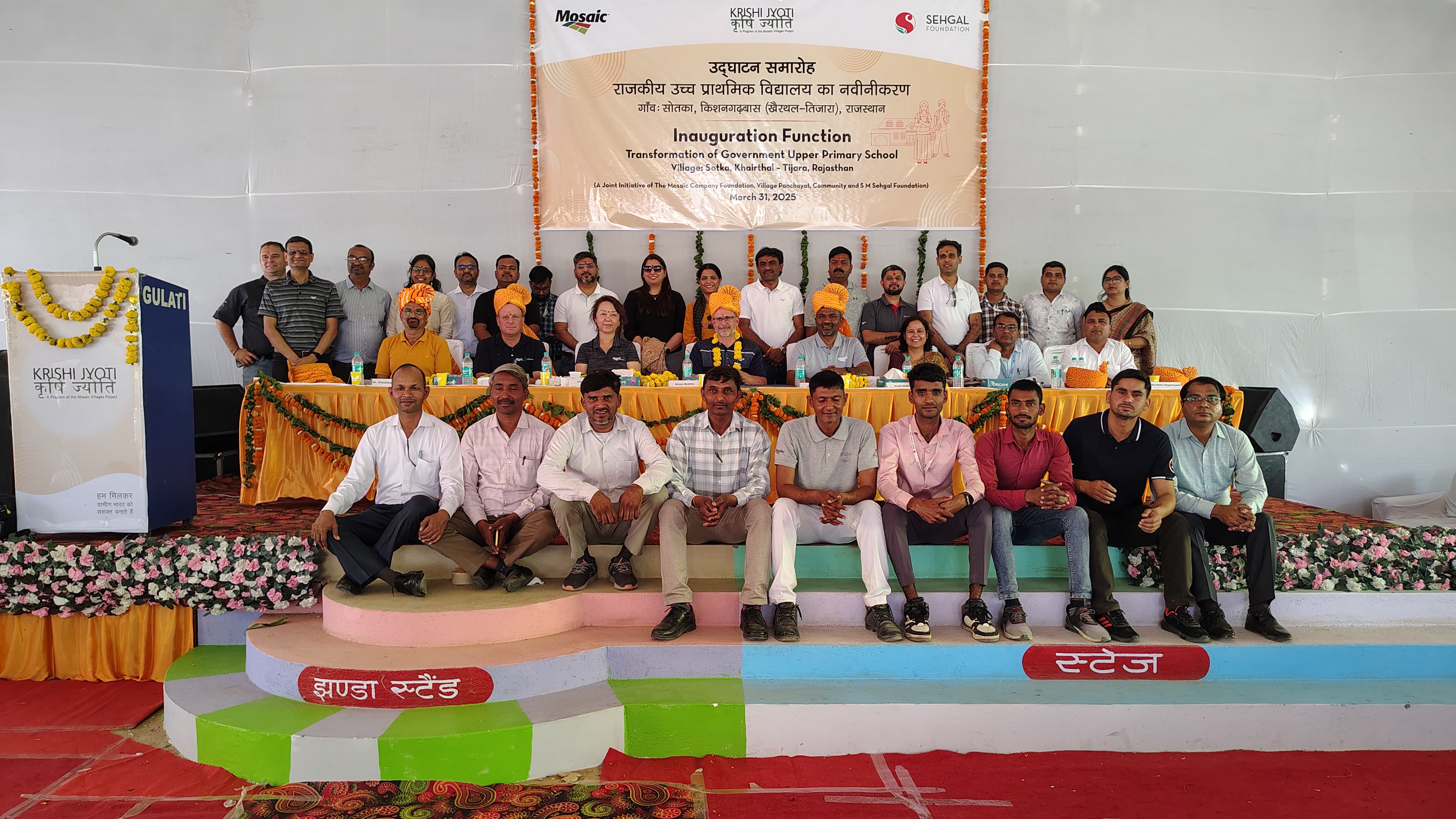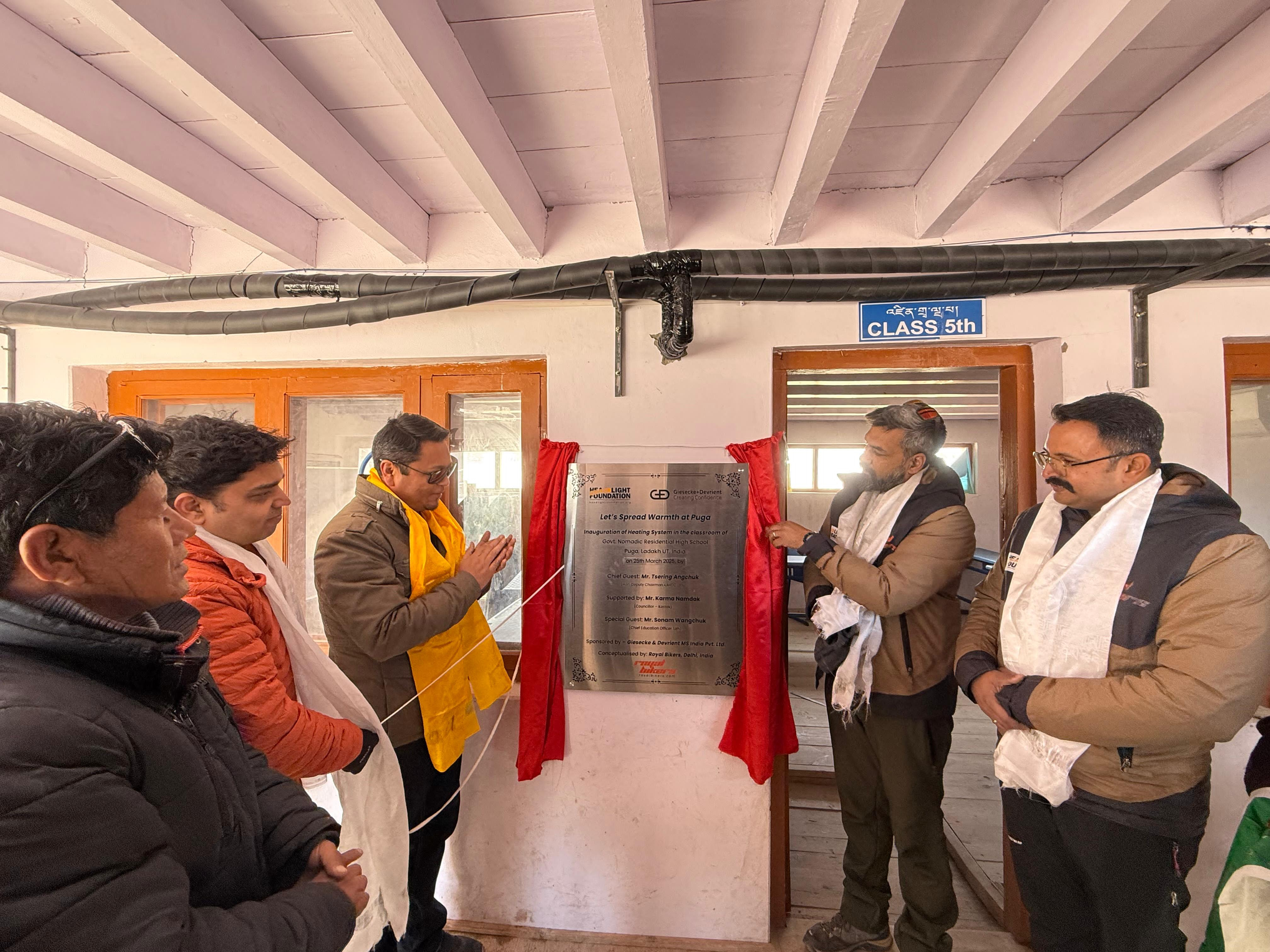Subscribe our Weekly Newsletter
Applications Invited for Upscaling Grants for Renewable Energy and Energy Efficiency under the Seventh Operational Phase of the GEF Small Grants Programme in India

Organization: GEF Small Grants Programme (SGP)
Apply By: 10 Apr 2025
Grant Amount: 50000 USD
About the Organization
GEF Small Grants Programme, established in 1992, the year of the Rio Earth Summit epitomizes sustainable development through its commitment to "thinking globally and acting locally." By providing both financial and technical assistance to initiatives focused on preserving and revitalizing the environment, all while improving the welfare and livelihoods of individuals, SGP showcases how community engagement can effectively maintain the fine balance between human needs and environmental imperatives.
SGP provides financial support to community-driven projects tackling global environmental challenges, offering grants of up to $50,000. This support is facilitated through a decentralized approach at the country level, overseen by a diverse National Steering Committee. Each participating country is assisted by a dedicated SGP Country Program Team. It is currently implemented by the UNDP, on behalf of the GEF partnership. SGP is structured to stimulate grassroots efforts by empowering local civil society and community-based organizations, which includes providing support to women, Indigenous Peoples, youth, and individuals with disabilities. SGP remains one of the GEF’s flagship initiatives and enjoys strong and broad support from its stakeholders, including governments, donors, civil society, and community-based organizations.
Over the course of the last 20 years, SGP has provided grants to over 20,500 civil society projects. In India, the Small Grants Programme started in 2000, and has been implementing projects in various parts of the country for more than two decades.
About the Grant
The Ministry of Environment, Forest and Climate Change (MoEF&CC) along with UNDP is implementing the Seventh Operational Phase of the GEF (Global Environment Facility) Small Grants Programme in India. The project aims to build capacities of the local communities to take collective action for conservation and sustainable development thereby generating global environmental benefits. It is implemented in close collaboration with The Energy and Resources Institute (TERI) for a period of five years. SGP India has three focal areas i.e. Climate Change, Biodiversity and Land Degradation and is being implemented in three regions of the country.
Introduction:
The Seventh Phase of the UNDP-GEF (Global Environment Facility) Small Grants Programme in India invites qualified organizations to submit proposals for projects focused on promoting "Renewable Energy and Energy Efficient Solutions".
A number of upscaling grants have been planned to facilitate durable impacts. Theme based grants are envisaged to be awarded to experienced NGOs, of which one is to implement Renewable Energy (RE) and Energy Efficiency (EE) solutions across the three project landscapes. This call for proposals is announced to on board an NGO/ CBO who will be responsible to create business models for upscaling proven community level RE and EE applications. The project will focus on demonstrating new innovative technologies like solar cold rooms, solar powered chakkis, solar dryers, energy efficient irrigation system, solar based fish pond aerators etc and will develop and promote business models for proven technologies like solar cookers, lighting systems, etc.
There are several potential applications in the three target regions and intervention landscapes, including horticulture and spice production and processing, e.g., in the state of Meghalaya, which is a major producer of ginger, turmeric, black pepper and pineapple), or the coastal districts of Ratnagiri and Sindhudurg, where there is extensive production of cinnamon, black pepper, turmeric, chillies and mangoes. In the selected coastal landscapes, there is potential for solar dryers for drying of fish and use of solar-based ice-making for preservation of fish. And there is potential to use solar energy based cold storage in each of the target regions and intervention landscapes.
Scope of Work:
The objective of this Request for Proposal (RFP) is to select a competent NGO/CSO/CBO capable of implementing RE and EE interventions of minimum in the range of 150- 250 KW across three targeted landscapes. The specific objectives are to:
- Implement community level RE and EE upscaling projects, preferably run by women and other marginalized groups.
- Promote solar PV based solutions for community-based energy needs (e.g. drinking water pumping, schools, institutions, health centres etc) and other livelihood applications (e.g. solar based cold storage, solar based processing units/livelihood application etc) Organizations are encouraged to design projects involving community and robust business models. The proposal should foster innovation through inclusive practices and aim to create a lasting impact on the environment and the broader community. Organizations are invited to submit proposals that focus on solutions for low-emission, efficient, and clean technologies.
They should contribute to the overall SGP goal of achieving 3 MW (of which Solar PV is 2 MW) in renewable energy and energy efficiency applications through the following: ‘
- Carry out innovative activities that encourage local communities to participate in increasing RE capacity.
- Develop innovative RE& EE solutions and establish innovative mechanisms of channeling financial resources at local levels to ensure sustainability.
- Building the local capacity to implement RE&EE solutions and creating institutional capabilities.
- Develop a regional strategy for renewable energy (RE) and energy efficiency (EE) solutions that provides an overview of the region and explores how these solutions can be scaled up. The strategy should include a baseline study identifying the challenges, risks, and barriers related to RE and EE adoption, and it should be supported by opportunities and region-specific solutions. It is essential to engage multiple stakeholders, including women and youth, to incorporate their perspectives and foster future collaboration for the expansion of such projects.
- Replicate project activities that are designed using a multi-stakeholder approach.
- Enhance livelihood opportunities and resources to build and expand upon the existing strategies of a lifestyle that can be sustained.
- Develop project which promote equality of opportunity to various vulnerable groups; magnifies role of women and youth in being change makers in the community and display inclusivity while carrying out various project activities. 8. Empowering local communities by enhancing their knowledge, enabling them to effectively plan, implement, coordinate, and monitor the outcomes.
Deliverables:
The selected NGO is expected to deliver the following:
Inception Report: A detailed work plan, methodology, and timeline for project implementation.
- Baseline Assessment/ Detailed Project Report (DPR): A report on the current state of applications of renewable energy (RE) and energy efficient (EE) solutions
- Implementation Plan: A comprehensive plan to upscale RE and EE applications. c. Business Model: A detailed plan on implementing quality project ensuring its sustainability
Progress Reports: Regular updates on project implementation and community engagement.
Final Report: A comprehensive report on project results, including lessons learned and recommendations for future sustainability.
Capacity Building Materials: Resources for training local communities and stakeholders.
Duration and Location:
Project Duration: The total project duration is 12 months Location: The project will be implemented across the specified landscapes and districts.
Funding:
The Small Grants Programme (SGP) can fund individual projects with grants up to USD $50,000 each.
Eligibility
Registration:
- The NGO/CSO/CBO should be registered as a trust / society in India for more than 5 years. The organization must have a minimum of 5 years of experience. Registration documents of the NGO to be submitted.
- NGO/CSO/CBO must be registered at the DARPAN portal of NITI Aayog and should have a valid unique ID with updated details.
- IT returns for the FY 2021-22, 2022-23 and 2023-24 (mandatory) and FCRA (if applicable) to be submitted.
- Audited accounts (including Balance Sheet, Income and Expenditure, Schedules, Notes of Accounts, and Auditor’s Report) for the FY 2021-22, 2022-23 and 2023-24 to be submitted.
- The latest Annual Report be submitted (FY 2023-24).
Organizational Requirements:
- The organization should have undertaken projects in the field of renewable energy, energy efficiency, climate change, biodiversity and climate change in the last 5 financial years, viz. FY 2019-20, 2020-21, 2021-22, 2022-23 and 2023-24.
- The organization should have prior experience in renewable energy projects along with proven track record of mobilizing co-funding from the community/private sector and government agencies.
- The applicant organization should have an office in the selected intervention state (Madhya Pradesh/ Maharashtra/ Tamil Nadu/ Meghalaya/ Assam) (Proof of the office in the focus landscape to be submitted).
- The organization is encouraged to submit the proposal in consortium with private/ government partner.
- A baseline study should be given by the NGOs highlighting the opportunity of low carbon technology and methodology of community engagement.
- NGO/CBO/CSO should have experience in implementing minimum 3 government/philanthropy/foundation funded projects in focused landscapes.
- The organization must have generated co-finance through parallel sources. (Proof of co-financing generated in the last three financial years to be submitted). Assessment study on willingness to pay by the community should be attached.
- Preference will be given to organizations who have participated in the earlier phases of the Small Grants Programme in India.
- The organization should not have been debarred by any Government or UN agency, at any point of time. A self-declaration to this effect to be submitted.
- Financial Capacit: The Applicant Organization should have received an average turnover of INR 30,00,000 (Thirty Lakhs) from project grants during last 3 (three) financial years viz. 2021-22, 2022-23, 2023-24 preceding the Proposal due date. (Organizations need to provide audited accounts and Auditor’s Report).
How to Apply
Proposals must be submitted no later than 10 April 2025 by email on sgpindia@teri.res.in.
For more information please check the Link
Stay in the loop with the newest RFPs and Grants through NGOBOX's WhatsApp Channel. Join now by clicking here!
Latest Online Store
Latest Tenders And EOIs
Latest News
© Renalysis Consultants Pvt Ltd












.png)











